They could’ve been the greatest team of all-time.

And maybe they still are. Maybe with the right formulas, in the right context, with the right analysis, the 2017 Oregon State Beavers will still stand favorably among the elites. Their 56-6 record is a program-best. Their .903 winning percentage is the fourth-best in NCAA history, just shy of Arizona State’s .914 mark in 1972—when the college game had far less parity. They led the country in team ERA at 1.93—almost a full run better than the next-closest team. They went a record-breaking 27-3 in Pacific-12 Conference games. They put together two 23-game winning streaks, carrying the latter into the College World Series.
But there’s one milestone the 2017 Beavers don’t have, and can never get:
A national title.
It turns out the Beavers’ most recent streak was the one that did them in— two straight losses.
For the first time in 2017, the Beavers lost back-to-back games, both against Louisiana State, the eventual national runner-up. The last, a 6-1 loss on June 24, spelled the end of a nearly flawless season. For 60 games, Oregon State could do little wrong. For a two-game stretch in Omaha, little went right.
After LSU closer Zack Hess threw his final pitch and the final out at second base was made, after both teams exchanged handshakes on the field, junior infielders Michael Gretler and K.J. Harrison and coach Pat Casey took the post-game dais and showed little in the way of emotion—mostly a look of disbelief. A week before, when Oregon State came back to beat Cal State Fullerton, the Beavers talked after the game about how the thought of losing never crosses their minds. And for good reason. In 2017, losing simply didn’t happen.
This story is from the {{IssueName}} edition of {{MagazineName}}.
Start your 7-day Magzter GOLD free trial to access thousands of curated premium stories, and 9,000+ magazines and newspapers.
Already a subscriber ? Sign In
This story is from the {{IssueName}} edition of {{MagazineName}}.
Start your 7-day Magzter GOLD free trial to access thousands of curated premium stories, and 9,000+ magazines and newspapers.
Already a subscriber? Sign In
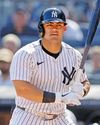
THE SERVICE TIME CONUNDRUM
MLB’s byzantine service time rules cloud rookie status and now PPI eligibility

LUIS TIANT WAS MLB'S MOST SUCCESSFUL CUBAN PITCHER
On a scouting trip to Cuba in 1957, Bobby Avila discovered 16-year-old righthander Luis Tiant on the island's Juvenile League all-star team.
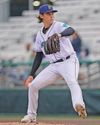
ORGANIZATION REPORT
Outfielder Heston Kjerstad's career has been unique, to say the least.

TOP 10 NL EAST
From the moment Thomas White stepped on a high school mound, he was viewed as the top lefthander available in the 2023 draft.

PREPARATION PAYS OFF
lowa politician J.D. Scholten makes a surprising return to pro ball at age 44

MAKING THE GRADE
Assessing the future value of graduated National League prospects
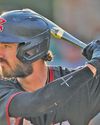
TOP 10 NL WEST
Even in high school, Bryce Eldridge could hit the ball a mile. The 6-foot-7 righthander could also touch 96 mph off the mound.
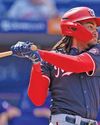
Wood Has Towering Upside- Nationals rookie James Wood also stands 6-foot-7 and also has game-changing power.
Aaron Judge and Oneil Cruz are 6-foot7 sluggers who stand out for their power in this year’s MLB Best Tools voting. Wood spent half of this season with Triple-A Rochester before making his MLB debut on July 1. While he was in the International League, he captured managers’ attention. Wood unanimously won Best Power Prospect and also claimed Most Exciting Player in a survey of league skippers. Wood hit .353/.463/.595 with 10 home runs in 52 games for Rochester. His .242 isolated slugging was the best for a player 21 or younger at Triple-A this season.
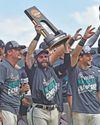
ROAD BLOCK?
Scholarship expansion puts mid-majors at a major disadvantage on the road to Omaha

ROYALS REVIVAL
A revamped and rejuvenated farm system has Kansas City ready to rebound